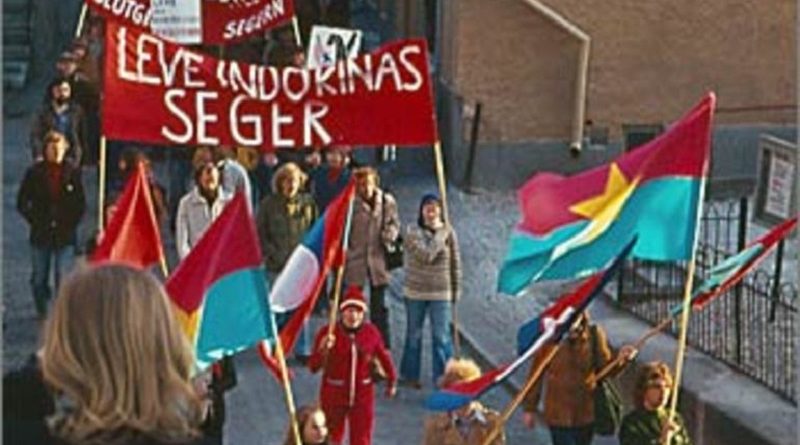Interview with a Swedish Communist
A communist veteran shares his experiences with organizing in Sweden.
Rickard B. is a Swedish comrade who has been fighting against capitalism since the seventies. Today he is a member of Kommunistiska Föreningen (kommunisten.nu) which works for communist organization in Sweden. Rickard has been in correspondence with Tjen Folket in connection with this for the past couple of years. We asked him some questions about his communist background, communism in Sweden and his views on the future of the MLM movement. Answers were paraphrased and translated from Swedish. [English translation translated from Norwegian – trans.]
Rickard has his feet well-planted in the worker’s movement. His father, grandfather and great-grandfather were all foresters. His father was a unionist who often complained of his dislike for priests, capitalists and kulaks. In 1962 Rickard was the main character in a sketch performed at his high school. In it he was portrayed as the school’s sole and avid listener of Radio Moscow. Yet it wasn’t until 1968 that he became organized in the youth league of Vänsterpartiet Kommunistarna (which today has become an SV-party). However, Rickard went in a more firmly marxist-leninist direction. He was one of the leaders of the outbreak in 1970 when KFML (later SKP) was founded.
A comrade has told us that you were subjected to surveillance. Can you talk a bit about that?
– In the 80’s and 90’s it became possible to view previously classified surveillance documents. Like many other communists I asked to see “my file”. It turns out they didn’t have much on me and the 7-8 pages contained mostly information from open sources. But there was one very interesting document. It showed that I had in 1968 purchased a brochure titled “What does KFML want?”. Was the book store I bought it from under surveillance? Was someone working there an agent? I never got to know. After the split with SKP you generally worked with a cover-name, etc. So SÄPO (the Safety Police) only knew about 10% of the organization – the open part.
Did surveillance have any consequences for you?
– It’s hard to say. But once when I took a washing job with Phillips (in the arms industry) the foreman came down to talk with me after a month. He said I failed the security clearance and I lost the job.
Can you speak a bit on the greatest highs and lows of being a part of the communist movement in Sweden?
– Sweden gained one of the biggest solidarity organizations on Earth during the Vietnam war when they – unlike the FNL organizations, united and together put pressure on the government to oppose the USA. Another high point was the forest worker’s strike which was the largest in modern Swedish history. We had members in the strike committee and I myself was responsible for keeping in touch with them. They were at the head of 13-15,000 striking forest workers. Between 1978 and 1980, after Mao’s death there was a bitter struggle within SKP. A party delegation came back from China and explained that the CCP said Yugoslavia was a socialist country. The group I was in didn’t believe that. Most of our comrades followed the authority of China’s new leadership but we saw straight through Deng Xiaoping from the start.
What is your view of the prospects for communism in Sweden today?
– To borrow a phrase from Mao I would say we find ourselves today in a stategic defensive position. We must rebuild a truly revolutionary communist party and be prepared to confront the fact that it will be a long and arduous process – there are no shortcuts. Objective conditions and social development are a determining factor for the growth of revolutionary forces but they cannot force the revolution. Until that time one must carry out properly principled politics, fight the daily struggles and expand the party. Then, all of a sudden, things can move very quickly. During the October Revolution, Bolshevik membership exploded in no time and in China the CCP went from 10,000 members in 1937 to one million in 1945. The red army grew from 30,000 to two million – things move quickly under the right conditions. Unfortunately however, I think Norway and Sweden will be among the last countries – transformations will occur firstly in neo-colonized countries in the third world – but that doesn’t mean we have to wait!
(This interview was conducted and written as part of a writing workshop at red summer camp 2016. We thank comrade Rickard B for the interview and wish him good luck with the continued struggle for revolution in Sweden.)
Source: https://tjen-folket.no/Sentralt/view/12165

